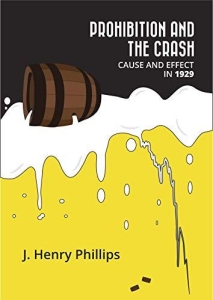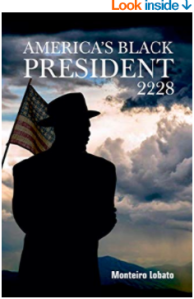13JULY1931, Prohibition Crushes Germany
 |
| German stocks dropped MAY1927 when dope profits became liable to income tax; NOV1928 when Hoover was elected & Rothstein killed, SEP1929 when the League of Nations endorsed global dope limitation, DEC1929 when German drug law called stimulants narcotics, 13JULY1931 when Germany signed the Narcotics Limitation Convention. U.S. Newspapers omitted mention of the wool-packed narcotics intercepted from Hamburg in April and made no mention of the Dope Limitation Convention signed the day the bottom fell out of Germany's Bourse and banking system. Yet officers of New York's Bank of United States were at that moment still being tried for bank fraud with nary a word about the half-ton of morphine the feds noticed arriving aboard the Alesia 09DEC1930, two days before that bank suffered fatal runs. No government is in a hurry to admit banks are failing because of government prohibition laws, and newspapers prefer to let readers connect the dots: 13JUL1931 Monday, Lawrence Journal-World p1 GERMAN FINANCE THREATENED BY RUNS ON BANKS—Must Be Given Help Quickly. Sackett writes Washington--… Hindenburg Signs Decree Reich undertakes to guarantee deficiencies arising from the Darmstadter’s ”nonliquidity.” Christian Endeavor resolves to Carry On Prohibition Fight… Buck Bradley convicted, sentenced for prohibition violation… (link) But the facts of the matter were hinted at on p2, where James Gerard, Woodrow Wilson's former Ambassador to Germany, commented that “If
Germany goes bankrupt and the Bruening cabinet falls, the country will be left
at the mercy of the communists and hitlerites."(link) Gerard was in the thick of things when Hague antidrug Convention--with mission creep from the Harrison Act--tipped the Balkan States opium glut war crisis into WW1.(link) Adolf Hitler participated as a lowly corporal with no clue of what was going on--just as Christian Endeavor prohibitionists in American had no clue their violent laws were in 1931 again pushing Germany toward autocracy, financial instability and war. That same page spelled out the July, 1931 situation: (link) FOREIGN CAPITAL LEAVES GERMANY—Half Billion Marks Withdrawn In The Last Few Weeks-- New York, July 13.--Now it's the watch on the Reichsbank: Germany's strong central bank, fighting what has been a losing battle against intangible forces of enormous power, symbolizes the economic struggle that has threatened her with financial ruin, a battle which, if completely lost, would have far-reaching effects throughout the rest of the world. The immediate cause of the crisis is the withdrawal of huge volumes of foreign funds from the Reich. In the background, of course, looms the reparations question, with its political uncertainties and considerations both at home and abroad, its questions of ability to pay, its problems of international trade and finance. Before the World War Germany was a large lender in other nations. ... Indeed, before WWI Germany competed with Dow Chemical in drug markets, held patents on Aspirin and Heroin and her writ ran large in sizeable areas of drug-consuming China, Samoa, and several African colonies. German warship crews watched Americans conquer Manila and impose fanatical prohibition laws on the Philippine Islanders--prompting a bloody revolt. Another onlooker, China, engulfed in bloody revolts of her own, by boycott persuaded Theodore Roosevelt to take up the Chinaman's Burden and rid the world of free trade in booze and drugs back in 1905.(link) Sitting American President Herbert Hoover had lived in China during the Boxer revolt, knew a few phrases in Chinese and in 1931 felt bound and determined to join the anarchic remains of the toppled Qing empire in a holy prohibitionist war on substance production and trade--a war begun by his Republican/Progressive hero, Theodore Roosevelt. The USA had bound Germany's allies to kowtow to Chinese-style prohibition laws in Armistice Agreements signed in 1919. President Hoover had no need for the League of Nations or Versailles Treaty other than as a lever for added pressure on German pharma to expand global prohibitionism. China used U.S. generosity to pay League member dues and join committees. From 1921 through 1931 civil-war-torn China had its own U.S.-backed representatives urging the League's Advisory Committee on Traffic in Opium and Dangerous Drugs to hogtie and hamper German pharma corporations with pettifogging demands. Europeans, painfully aware that the U.S. prohibition and narcotics bureaus were gleefully killing thousands of America's own citizens, imprisoning tens of thousands more, and hauling large alcohol, sugar and banking corporations into the dock to respond in criminal proceedings involving prison terms, padlockings, huge fines and libel confiscations including luxury yachts and ocean liners, were very, very deferential. Europeans, saddled with interest payments and WW1 loans gotten from the Wilson Administration had watched as the 1909 Hague Antiopium Convention sprouted additional powers and demands. "Cocaine Negroes" were invented by journalists as hobgoblins prompting politicians to pass a Harrison Act, which was soon interpreted as banning stimulants by renaming them narcotics. Marijuana leaves followed coca leaves as victims of mission-creep amendments worsening wedged legislation in the march toward WW1. After the war, a frustrated prohibitionist U.S. intimidated Great Britain into joining a breakaway Convention to ban all manner of things besides opium under the banner of the "Geneva" Convention of 1925. Finally Germany--the world leader in production of morphine in its myriad guises, cocaine made from Dutch coca grown primarily on Java and Sumatra and developer of synthetic mescaline during WW1--saw itself surrounded by officious and coercive League bureaucrats. Leading the charge was Harry Anslinger, Commissioner of America's brand-new Bureau of Narcotics, busily drawing up violently binding legislation to further chip away at Germany's remaining major industry. So on that very day of Germany's disastrous capitulation to Sino-American prohibitionism, former ambassador Gerard mentions aloud the name of the xenophobic and anti-Versailles Treaty politician whose national socialist party in the 1930 elections had grown to second-largest in all of Germany--Adolf Hitler. Officers of huge German chemical and pharma corporations--facing the abyss of disaster--calculated that this demagogue of power Christianity was their only hope of escaping League encirclement and officious impositions by American-backed international prohibitionist conspiracies. Campaign contributions began to flow... * * * Interesting reading: The Latin American Narcotics Trade and American National Security is a compendium of shrill prohibitionist propaganda articles produced during the Reagan-Bush "Just Say No," "War on Drugs," "Zero Tolerance," and "Drug-Free America" campaigns leading up to the Crash of 1987. Edited by Donald J Mabry during the subsequent recession and unemployment crisis as the DEA invaded many South American countries, the collection is yet another call to arms--this time to invade and conquer Panama as part of another attempt to claw back overseas dollars. Recall that after Herbert Hoover's policies wrecked both the U.S. and German economies, sudden departures of deposits and gold prompted drafting of a nationwide Banking Moratorium which included government confiscation of all remaining gold. Lame-duck Hoover handed this plan to incoming President Franklin Roosevelt just before Inauguration Day, and FDR--who had watched the 1931 Moratorium destabilize the global economy--renamed it the Banking Holiday. Nixon's prohibition policies a half-century later again trapped the U.S. The nation was forced off the gold standard thanks to a diaspora of dollars presented for gold. By the time Mabry's compilation was launched to soften up the public for another prohibition war, it inadvertently included most of the evidence anyone could ask for to prove that dishonest laws making a crime of production and trade must inevitably lead to panics, crashes, economic destabilization, hyperinflation and war. Following the looting of Panama, libraries withdrew it from their collections and I ended up with a bargain copy. The collection sets forth a detailed record of how fanatics get a "reasonable" law passed, then proceed to "amend" and worsen it so as to sidestep the Constitutional ban on ex-post-facto laws. The resulting mutation proceeds to clobber the economy to smithereens. This exact same pattern was followed with the League of Nations' Narcotics Limitation Convention that raised Hitler to power then brought on another World War. League of Nations records also reveal how the French opium régie, in what later became Vietnam was--by the economics of the Limitation Convention--absorbed in by something Harry Anslinger described as a monstrous Communist narcotics conspiracy. This is described in the Mabry collection and in Anslinger's own writings. They do a tale unfold, but it's hardly the one they intended. Get the big picture in Prohibition and The Crash on Amazon Kindle in two languages. After this you’ll be able to explain to economists exactly how fanaticism and loss of freedom wrecked the U.S. economy.  Prohibition and The Crash, on Amazon Kindle (link)  ASYLUM APPLICATION FORM i589 INSTRUCTIONS IN PORTUGUESE: INSTRUÇÕES PARA O FORMULÁRIO DE ASILO i589. What we did was make the Political Asylum instructions accessible to and understandable by people accustomed to thinking in Portuguese. This costs one dollar ($1) and you can read it on a cellphone with the Kindle app.(link) Comment at LIBtranslator, my political economy blog at https://libertrans.blogspot.com/ Brazilian Sci-fi from 1926 featuring the adventures of a Rio de Janeiro man-about-town and the beautiful daughter of an elderly scientist–touting alcohol prohibition, eugenics and racial collectivism–in America’s Black President 2228 by Monteiro Lobato, translated by J Henry Phillips (link)  I also produce books and articles in Portuguese, using Brazilian historical sources at http://www.expatriotas.blogspot.com or www.amigra.us and in English at Libertariantranslator.wordpress.com (link) My financial history blog, http://www.Libertrans.us, is LIBtranslator, readable at libertrans.blogspot.com Go ahead and comment. Do you need to contact a certified Translator or Interpreter?  Está procurando tradutor ou intérprete credenciado?  |





Comments
Post a Comment